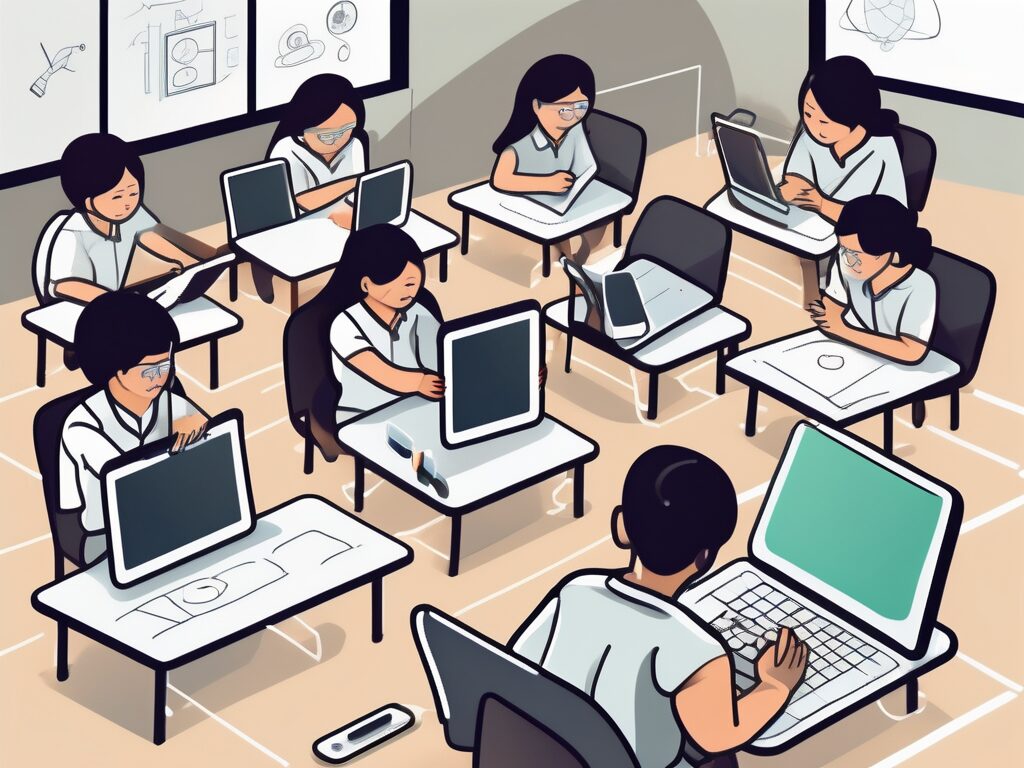Engaging students in the learning process is a critical component of effective teaching. In Thailand, a country known for its rich cultural heritage and vibrant education system, educators are continually exploring innovative techniques to enhance student engagement. This article delves into the various strategies employed in Thai classrooms to stimulate student interest and participation.
Active Learning Techniques
Active learning techniques are increasingly becoming the cornerstone of Thai education. These methods, which involve students actively participating in the learning process, are designed to foster critical thinking and problem-solving skills.
One popular active learning technique in Thailand is the ‘Think-Pair-Share’ method. In this approach, students are encouraged to ponder over a question or problem individually (‘Think’), discuss their thoughts with a partner (‘Pair’), and then share their insights with the class (‘Share’). This method not only promotes individual thinking but also encourages collaborative learning.
Another common technique is the use of ‘Learning Stations’. In this method, different areas of the classroom are designated for various learning activities. Students rotate among these stations, engaging in different tasks and learning at their own pace. This technique not only breaks the monotony of traditional teaching methods but also caters to different learning styles.
Technology-Enhanced Learning
With the advent of technology, Thai classrooms are transforming into dynamic learning environments. The use of digital tools and resources is becoming increasingly prevalent, offering a myriad of opportunities for student engagement.
One such tool is ‘Kahoot!’, an online game-based learning platform. Thai educators often use Kahoot! to create interactive quizzes that students can participate in using their smartphones or tablets. The competitive element of the game motivates students to learn, making the learning process fun and engaging.
Another popular digital tool is ‘Google Classroom’. This platform allows teachers to create virtual classrooms, assign homework, and provide feedback online. It also facilitates collaborative learning, with students able to engage in group projects and discussions online. The convenience and flexibility offered by Google Classroom make it a valuable tool for enhancing student engagement.
Experiential Learning
Experiential learning, or learning through experience, is another effective technique for engaging students in Thailand. This method involves students learning through direct experience or ‘doing’ rather than simply listening or reading.
Field trips are a common form of experiential learning in Thai schools. For example, a history lesson might involve a visit to a local museum or historical site. This hands-on approach brings the subject matter to life, providing students with a deeper understanding and appreciation of the topic.
Project-based learning is another form of experiential learning commonly used in Thailand. In this approach, students work on a project over an extended period, applying what they have learnt in the classroom to solve a real-world problem. This method not only enhances understanding but also develops skills such as teamwork, communication, and project management.
Conclusion
Engaging students in the learning process is crucial for effective education. In Thailand, educators employ a variety of innovative techniques to stimulate student interest and participation. From active learning methods to technology-enhanced learning and experiential learning, these strategies are transforming Thai classrooms into dynamic and engaging learning environments.
As we continue to navigate the evolving landscape of education, it is essential to keep exploring and implementing effective student engagement techniques. After all, an engaged student is a learning student.
Advance Your Teaching Career with IPGCE
As you strive to engage your students and enhance your teaching methodologies in Thailand, consider taking the next step in your professional development with IPGCE. Our International Postgraduate Certificate in Education is designed to elevate your qualifications, connect you with a global network of educators, and provide you with a deep understanding of international curricula. Embrace the opportunity to increase your chances for interviews, promotions, and salary growth. Don’t let inadequate credentials or isolation limit your potential. Join the UK’s #1 Teacher Training Course today and become part of a community that values continuous learning and career progression.

